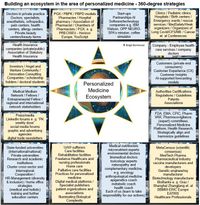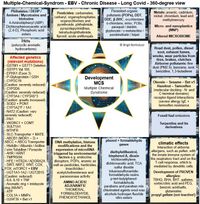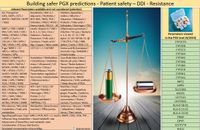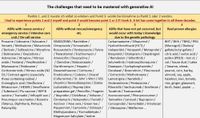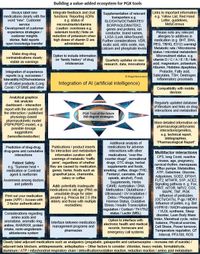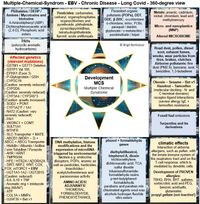Personalized Medicine - Developing sustainable ecosystems
A 360 view of the future - Thoughts on the development of more robust PGX tools
PGx – Between Hope and Progress: The Future of Personalized Medicine
Pharmacogenetics (PGx) is a key pillar of personalized medicine and has already paved the way for significant advancements — particularly for individuals suffering from severe adverse drug reactions (ADRs). This includes my own experience!
Without PGx, medication would be far less precise and pose even greater risks. While the progress made so far represents a crucial milestone, there are still challenges that require further development.
Digital PGx tools are valuable instruments, yet they must be expanded to enhance the accuracy of individual drug response assessments. Currently, incomplete or incorrect PGx evaluations could lead to dosing errors if interactions, genetic variations, and environmental influences are not sufficiently considered.
This highlights an essential need: PGx must evolve, grow, and integrate its findings more comprehensively to fully deliver on the promise of personalized medicine. The consequences of inadequate drug adjustments are devastating — whether it be the sudden loss of a loved one due to intolerance, severe disease progression from ADRs, or resistant infections with no effective therapeutic options. These personal experiences have profoundly shaped my perspective and motivated me to advocate for a more extensive PGx ecosystem.
The future of PGx lies in a holistic approach — one that integrates genetic factors, metabolic processes, immune responses, and biochemical dynamics. Science stands at a turning point where artificial intelligence, real-time data analysis, and multidisciplinary research could revolutionize the next generation of PGx tools.
PGx has the potential to be life-saving — but it must continue evolving and be embedded within broader precision medicine ecosystems. Scientific collaboration remains essential to incorporating more factors into PGx analyses and transforming it into a truly reliable instrument for safe and individualized medication strategies. Advances in multi-gene analysis, machine learning, and big data are enabling a deeper understanding of interactions and more precise patient-specific considerations.
Currently, many clinical applications are limited to evaluating known gene-drug interactions. The full integration of environmental factors, microbiome data, metabolism, and individual predispositions remains incomplete.
One of the greatest challenges, in my view, is translating these insights into practical applications, ensuring that physicians receive not only genetic data but also clear, reliable, and actionable guidance. Many PGx tests are still not comprehensive enough to accurately reflect the complexity of individual patient profiles.
PGx is not a distant utopia — it is a tangible opportunity for a new era in medicine. Through targeted research, groundbreaking innovations, and close interdisciplinary collaboration, PGx could fully realize its potential and become a cornerstone of modern healthcare.
A important piece of the puzzle of these ecosystems for me is also the weekly “PK weekly dose” by Professor Eric Chan in the sense of PK knowledge transfer and personalized medicine. Please let us change to my PK-Community section for this
Please be sure to visit the section "PGx analyses and the lack of consensus" (case studies).

